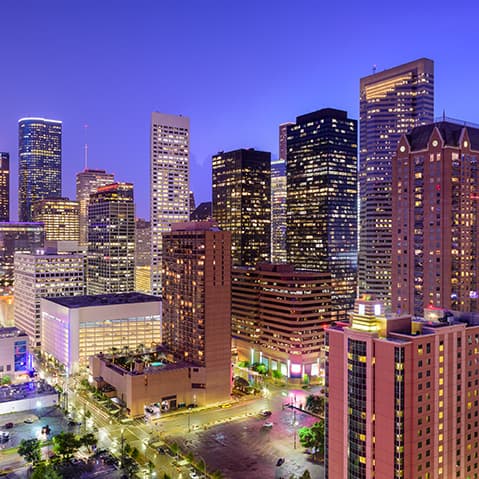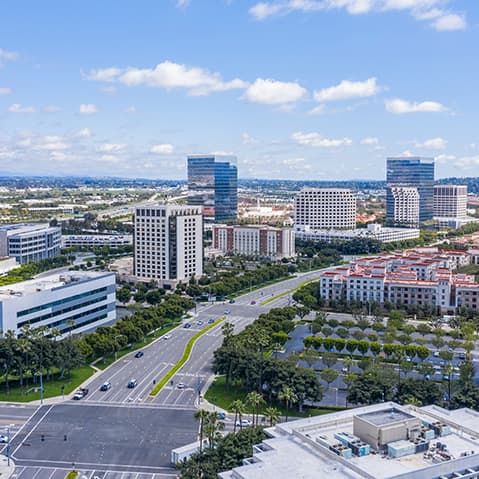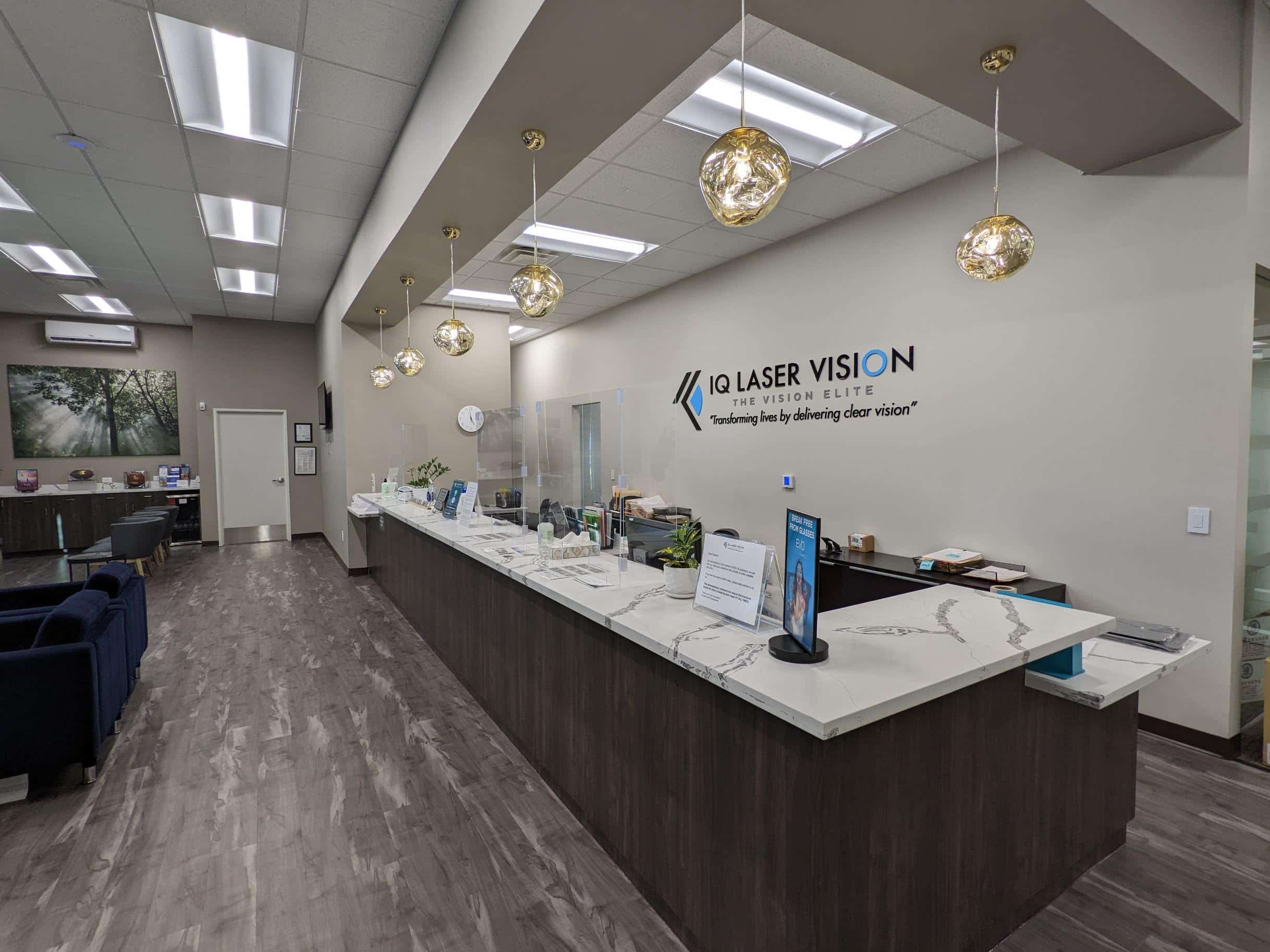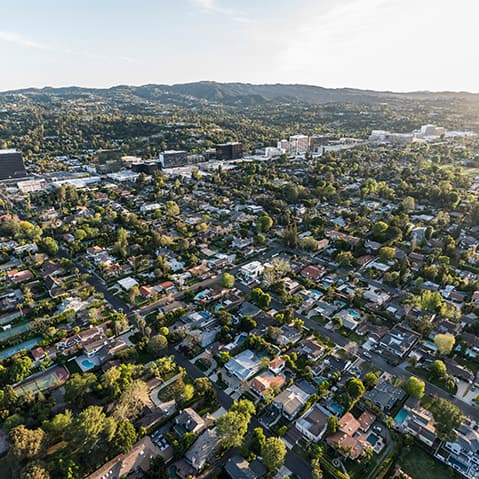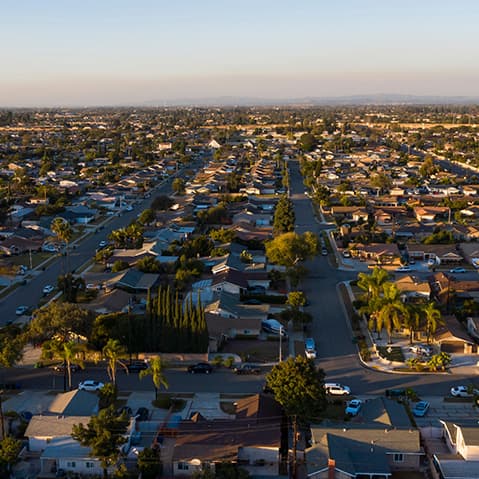Are you looking for a way to achieve visual freedom from visual aids like glasses and contact lenses? Although the most popular laser vision correction procedure is LASIK, it’s not the only one.
Even if you find out that you’re not a LASIK candidate, it doesn’t have to mean you can’t have a vision correction procedure. You may not realize that there are other procedures out there that IQ Laser Vision offers, like PRK.
Keep reading to learn more about PRK, the recovery timeline, and if you could be a good candidate for this vision correction procedure!
What is PRK?
PRK is a laser vision correction procedure that was developed before LASIK. Although LASIK is the most popular vision correction procedure and one of the first ones people think of when correcting their vision, it wasn’t the first.
PRK was the first vision correction procedure that has several similarities to LASIK. Like LASIK, it involves correcting refractive errors, including nearsightedness, farsightedness, and astigmatism, by permanently reshaping the cornea.
However, it’s here that the similarities end. LASIK achieves this by creating a flap in the cornea. With PRK, there is no flap created, making it more suitable for candidates with thinner corneas or dry eye syndrome.
Instead of creating a flap, PRK removes the epithelium from the cornea. The epithelium is the cornea’s outer layer. The epithelium regenerates as you recover from PRK.
Who is a Good Candidate for PRK?

To undergo PRK, you must qualify as a good candidate for the vision correction procedure. Some of these factors include:
- Being at least 18 years old
- Having a stable prescription that hasn’t changed in at least a year or more
- Being in good health
- Not having any pre-existing eye conditions like cataracts
- Having a prescription within the treatment range
The only way to know if you’re a good candidate for PRK is to schedule a consultation at IQ Laser Vision!
The PRK Recovery Timeline and What to Expect
If you’re going to get PRK, it’s essential to know what the recovery timeline is like and what to expect. Another one of the key differences between LASIK and PRK is it takes longer to recover after PRK.
You’re definitely not looking at spending months in bed after having the procedure, but because your surgeon removes the epithelium, it takes some time to regenerate. Even though the epithelium needs time to heal, you can still look forward to seeing a visual improvement quite quickly!
Here’s what a basic PRK recovery timeline might look like.
The First Few Days After PRK
During the first few days after having PRK, you will be in the early stages of recovery. The healing process will have just begun, and how well you respond now will impact the rest of your recovery.
You may experience minor discomfort, itchiness, or a desire to rub your eyes. Do not rub your eyes, as this could make it much more challenging to heal or lead to other concerns.

Make sure that you follow the instructions given to you by your eye doctor and use your medicated eye drops as directed. You’ll have to attend a follow-up appointment with your eye surgeon to ensure that your eyes have begun healing and haven’t had any complications or infections.
If you find that your eyes cause you discomfort, you can take over-the-counter pain medication. You can also do other things to ensure your recovery is as smooth as possible.
For the first day or two after having PRK, do your best to avoid doing anything that might cause eye strain. This may be as simple as not using your computer or any digital devices for a day or two.
You’ll also need to wear your eye shields according to the directions given by your eye doctor. Your eye shields are a necessary component of the healing process after PRK. You’ll need to wear them to protect against any accidental rubbing that might occur while you’re sleeping.
Just as your shields will protect your eyes, you need to use the eye drops prescribed by your eye doctor as directed. These drops help prevent infection and improve your chances of proper healing. They can also help with feelings of discomfort due to dryness and itching.
One Week to Six Months After PRK
In the first week or two after having PRK, you may notice additional side effects like sensitivity to light, poor vision at night, and the occasional halo around light sources. The first month is when most people in the PRK recovery timeline begin to notice the most significant changes in their vision.
Keep in mind that these side effects are temporary and should go away on their own. In the weeks and months after your procedure, you’ll continue to see your eye doctor for follow-up appointments.
These appointments are a crucial component of your recovery, so it’s essential that you attend all of them. After about six months, you’ll notice that any ongoing issues with your vision, such as dry eyes or itchiness, begin to disappear.
Your vision should have already stabilized, leaving you with the ability to see clearly and without the need for visual aids. There’s a chance that your eye doctor will want to see you during this time, but it may just be to check that you’re happy with your results.
Improving Your PRK Recovery Timeline

It’s good to protect your eyes wherever and whenever you can to help ensure you get the most out of your PRK recovery timeline. Doing this can be as simple as always wearing sunglasses outside, no matter what the weather.
Sunglasses can protect your eyes from particles like dust, dirt, and allergens. They can also reduce glare and exposure to wind.
You may also consider carrying artificial tears or eye drops in your bag or purse to keep moments of irritation and discomfort at bay. If you have dry eyes, use artificial tears instead of rubbing your eyes.
Rubbing your eyes could cause damage and slow down the healing process during your PRK recovery timeline. Finally, to ensure that your PRK recovery timeline goes according to plan, the best thing you can do is see your eye doctor for all follow-up appointments.
These appointments will ensure that your healing process is going smoothly. They’ll only know you’re recovering correctly after PRK if they see your eyes and discuss your recovery.
Ready to take the next step on your visual journey? Schedule an appointment at IQ Laser Vision in Los Angeles, CA, and find out if a LASIK alternative like PRK could be right for you!





